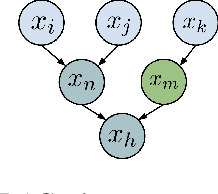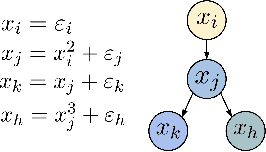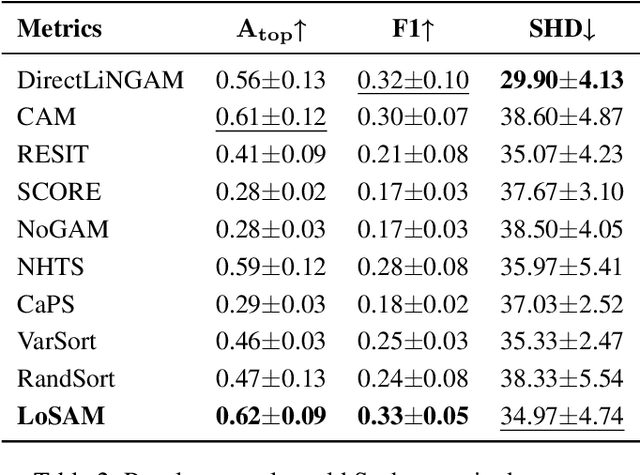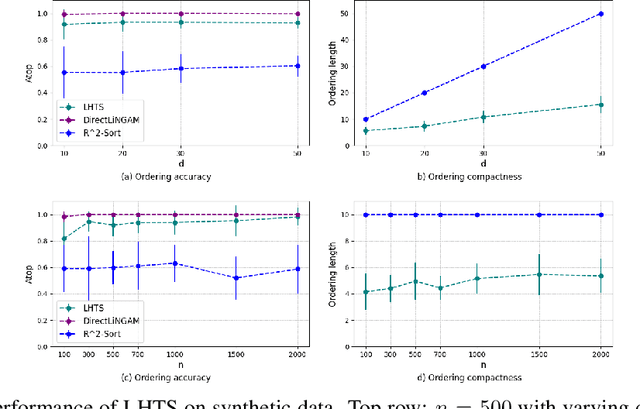Sujai Hiremath
From Guess2Graph: When and How Can Unreliable Experts Safely Boost Causal Discovery in Finite Samples?
Oct 16, 2025Abstract:Causal discovery algorithms often perform poorly with limited samples. While integrating expert knowledge (including from LLMs) as constraints promises to improve performance, guarantees for existing methods require perfect predictions or uncertainty estimates, making them unreliable for practical use. We propose the Guess2Graph (G2G) framework, which uses expert guesses to guide the sequence of statistical tests rather than replacing them. This maintains statistical consistency while enabling performance improvements. We develop two instantiations of G2G: PC-Guess, which augments the PC algorithm, and gPC-Guess, a learning-augmented variant designed to better leverage high-quality expert input. Theoretically, both preserve correctness regardless of expert error, with gPC-Guess provably outperforming its non-augmented counterpart in finite samples when experts are "better than random." Empirically, both show monotonic improvement with expert accuracy, with gPC-Guess achieving significantly stronger gains.
LoSAM: Local Search in Additive Noise Models with Unmeasured Confounders, a Top-Down Global Discovery Approach
Oct 15, 2024



Abstract:We address the challenge of causal discovery in structural equation models with additive noise without imposing additional assumptions on the underlying data-generating process. We introduce local search in additive noise model (LoSAM), which generalizes an existing nonlinear method that leverages local causal substructures to the general additive noise setting, allowing for both linear and nonlinear causal mechanisms. We show that LoSAM achieves polynomial runtime, and improves runtime and efficiency by exploiting new substructures to minimize the conditioning set at each step. Further, we introduce a variant of LoSAM, LoSAM-UC, that is robust to unmeasured confounding among roots, a property that is often not satisfied by functional-causal-model-based methods. We numerically demonstrate the utility of LoSAM, showing that it outperforms existing benchmarks.
Hybrid Global Causal Discovery with Local Search
May 23, 2024



Abstract:Learning the unique directed acyclic graph corresponding to an unknown causal model is a challenging task. Methods based on functional causal models can identify a unique graph, but either suffer from the curse of dimensionality or impose strong parametric assumptions. To address these challenges, we propose a novel hybrid approach for global causal discovery in observational data that leverages local causal substructures. We first present a topological sorting algorithm that leverages ancestral relationships in linear structural equation models to establish a compact top-down hierarchical ordering, encoding more causal information than linear orderings produced by existing methods. We demonstrate that this approach generalizes to nonlinear settings with arbitrary noise. We then introduce a nonparametric constraint-based algorithm that prunes spurious edges by searching for local conditioning sets, achieving greater accuracy than current methods. We provide theoretical guarantees for correctness and worst-case polynomial time complexities, with empirical validation on synthetic data.
 Add to Chrome
Add to Chrome Add to Firefox
Add to Firefox Add to Edge
Add to Edge